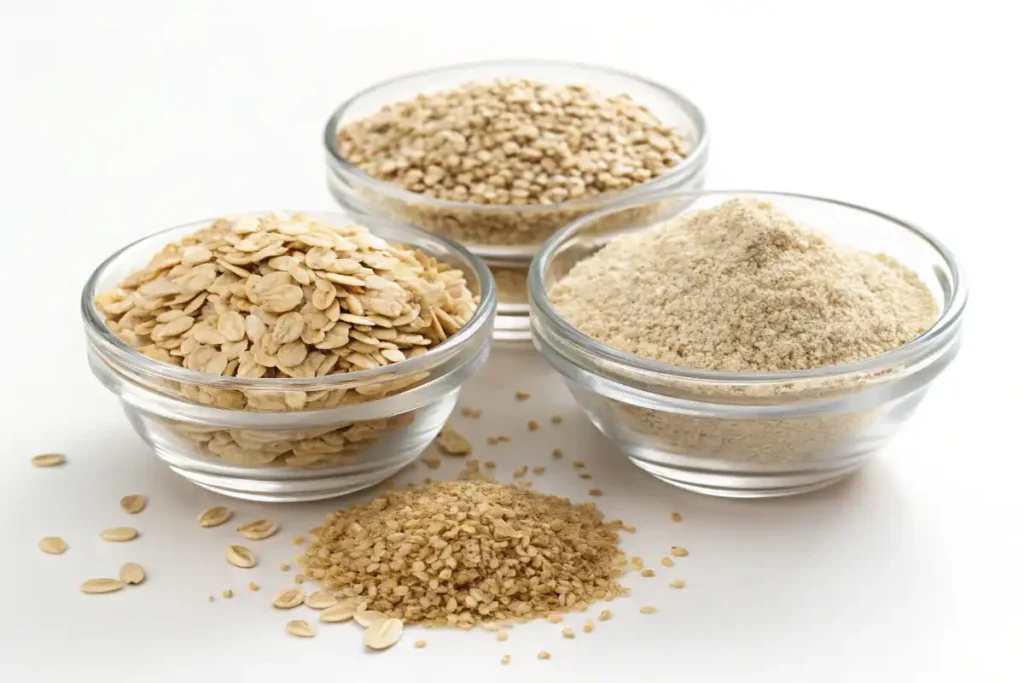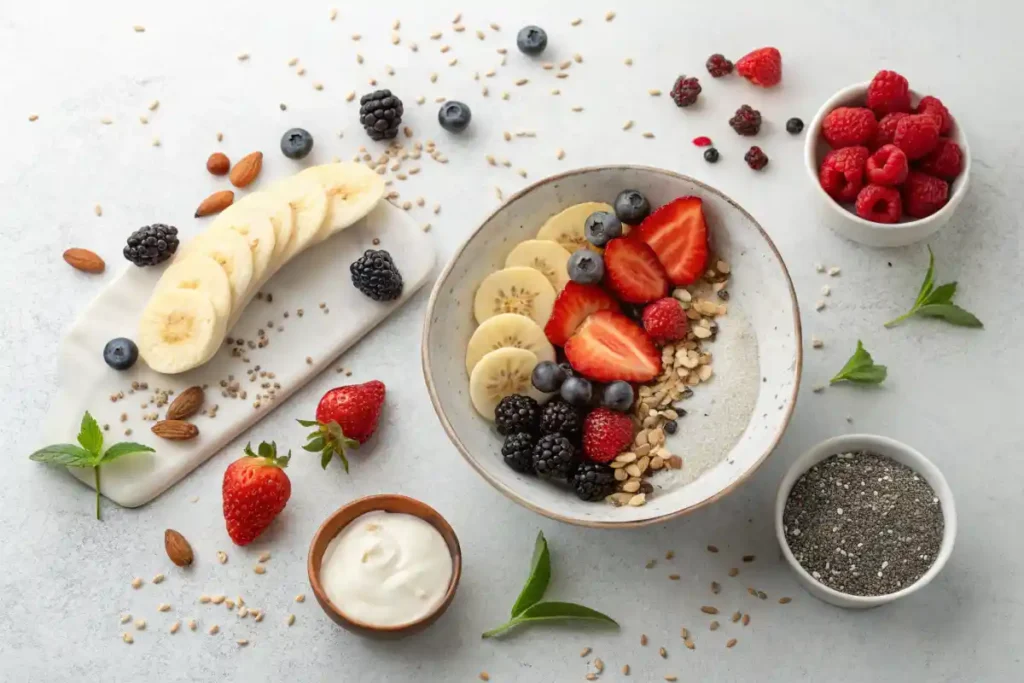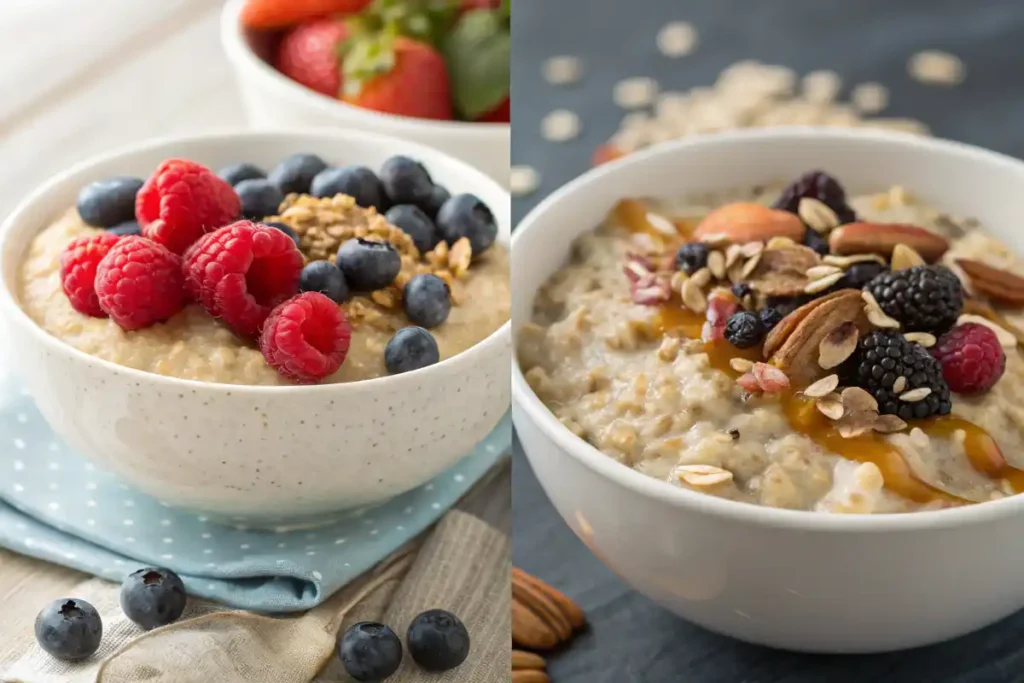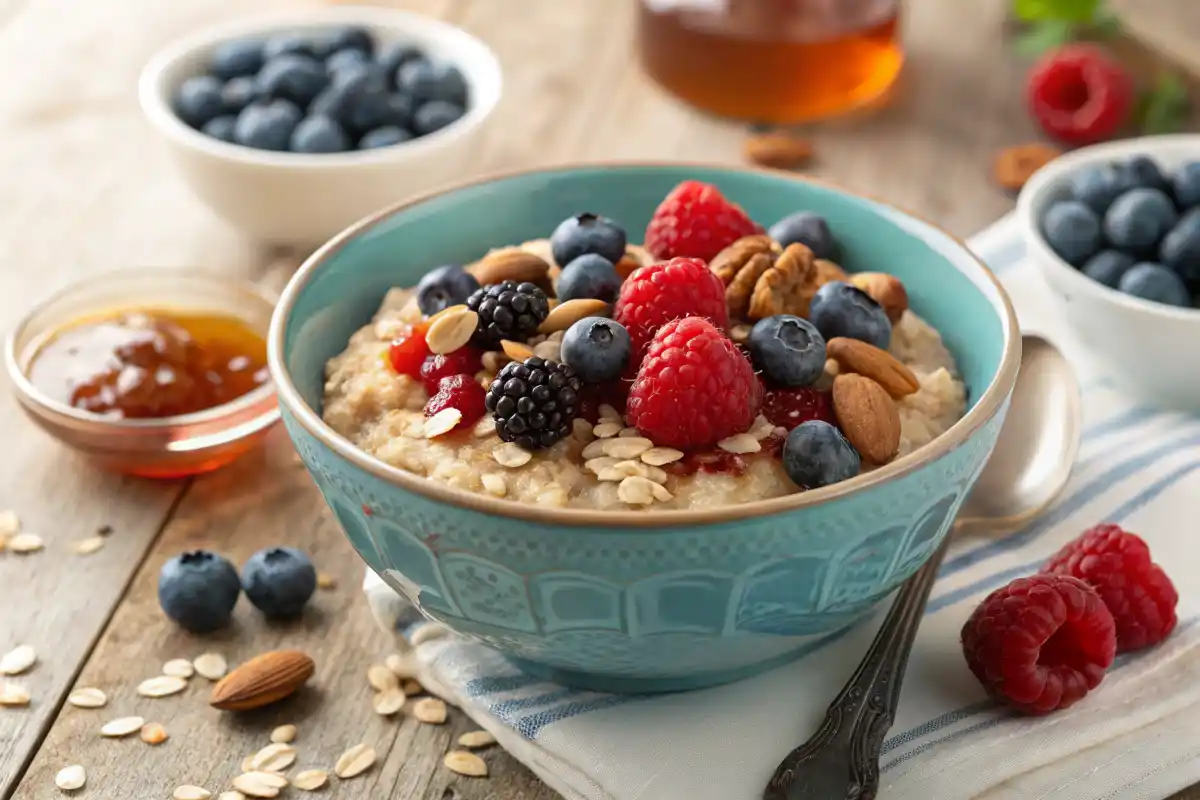Dealing with Polycystic Ovary Syndrome (PCOS) can feel like navigating a maze, especially when it comes to diet. One food that often pops up in the conversation is oatmeal. Is it a friend or foe for those managing PCOS? That’s the big question we’re tackling today. This article is going to dig deep into whether oatmeal is ok to eat with PCOS, looking at all sides of the story, from nutritional facts to practical advice. We’ll explore how oatmeal fits into the bigger picture of a PCOS-friendly diet, what to watch out for, and how to make the best choices for your health. So, let’s get started and sort through the facts about oatmeal and its place in a PCOS diet.
1: Understanding PCOS and Its Dietary Implications

What is Polycystic Ovary Syndrome (PCOS)?
Okay, let’s break down what Polycystic Ovary Syndrome (PCOS) actually is. It’s a common hormonal disorder that affects women of reproductive age, and it’s not as simple as it sounds. In short, it messes with your hormones, causing imbalances that can lead to a range of symptoms. These symptoms vary from person to person, but you might hear about things like irregular periods, weight gain, acne, and excess hair growth. Moreover, insulin resistance often plays a huge role in PCOS, making it harder for the body to use insulin effectively, and this can further complicate things.
The Link Between Diet and PCOS Management
Now, here’s the thing: when it comes to managing PCOS symptoms, what you eat really does matter. Indeed, your diet can have a big impact on the severity of your symptoms. Generally speaking, a PCOS-friendly diet often involves focusing on whole foods, minimizing processed stuff, and being mindful of carbohydrates. In fact, carbohydrates, particularly refined ones, can really affect insulin levels, and given that insulin resistance is often a concern in PCOS, managing your carbohydrate intake is paramount. So, making the right choices can make a significant difference in how you feel and how well you manage your PCOS. And that’s why we’re here, to find out whether oatmeal fits into that picture!
2: The Nutritional Profile of Oatmeal
Types of Oatmeal: A Quick Overview
So, before we really dig into whether oatmeal is ok to eat with PCOS, let’s talk about the different types you’ll find. You see, not all oatmeal is created equal. First up, you’ve got quick-cooking oats, which are very processed and tend to cook super fast. Then there are rolled oats, also known as old-fashioned oats, which are flattened oat groats and take a bit longer to cook. Lastly, we have steel-cut oats, also called Irish oats, which are the least processed, taking the longest time to cook. The processing makes a difference not just in cooking time, but also in how they affect your blood sugar, and consequently, in their suitability for a PCOS diet.
Oatmeal’s Key Nutrients and Their Benefits
Now, let’s look at the good stuff that makes oatmeal pretty nutritious. In fact, it’s a great source of fiber, which plays a vital role in keeping you full and steadying your blood sugar levels, which is really important for managing PCOS. Besides, oatmeal contains important vitamins and minerals like manganese, phosphorus, magnesium and zinc, all essential for your overall health. Moreover, one particular type of fiber in oats, called beta-glucan, is known for its ability to lower cholesterol and further help in regulating blood sugars. Thus, oatmeal definitely brings some good stuff to the table.
Oatmeal and its Glycemic Index
Okay, the glycemic index or GI is a crucial thing to consider, especially when asking is oatmeal ok to eat with PCOS? The GI basically tells you how quickly a food raises your blood sugar levels. You see, different types of oatmeal have different GIs, based on how processed they are. As a result, the more processed, like quick oats, the higher the GI, and that might mean a faster spike in your blood sugar. Furthermore, what you put in your oatmeal can also change the GI. So, a bowl of plain oatmeal is different from one loaded with sugar and other high-glycemic stuff.
3: Is Oatmeal A Good Choice For Women With PCOS?
The Potential Benefits of Oatmeal for PCOS
So, given what we know about its nutritional profile, is oatmeal ok to eat with PCOS? Well, let’s start with the positives. For one, the high fiber content in oatmeal can actually help with blood sugar control. Indeed, fiber slows down the digestion process and the absorption of sugar, thus preventing those sudden spikes and crashes in your blood sugar. Additionally, that fiber also contributes to satiety, which means you feel fuller longer, which can be helpful for weight management that is very important for many women with PCOS. Moreover, there’s some evidence that the beta-glucan in oatmeal might actually improve insulin sensitivity, which as you remember is a key problem for women with PCOS.
Potential Drawbacks and Concerns About Oatmeal for PCOS
Now, let’s switch gears and talk about the potential downsides. Although oatmeal can be beneficial, there are things to watch out for. First off, if you aren’t careful, you can experience blood sugar spikes, especially if you’re adding sugary syrups or toppings. Additionally, many flavored oatmeals often come with a ton of hidden sugars which can be a big no-no for managing PCOS. Finally, it’s good to note that some people with gluten sensitivity might have a reaction to oatmeal, though oats themselves are naturally gluten-free, but are often processed in facilities that also handle wheat. If you have PCOS and find you may be sensitive to gluten, be sure to check for certified gluten-free oats.
Finding the Right Balance with Oatmeal for PCOS
So, is oatmeal ok to eat with PCOS? Well, it really depends on how you choose and prepare it. In short, choosing the right type is key, like steel-cut oats or rolled oats, which have a lower glycemic index than instant oats. Portion size is also crucial; a huge bowl might send your blood sugar soaring. Furthermore, it’s really helpful to pair your oatmeal with some protein and healthy fats, like a handful of nuts or seeds, to further slow down the digestion and absorption process and stabilize blood sugars. Therefore, finding that balance will really help you get the benefits of oatmeal without risking the drawbacks.
4: How to Prepare Oatmeal for PCOS: Best Practices

Smart Ways to Cook Oatmeal for Blood Sugar Control
Okay, so you know is oatmeal ok to eat with PCOS, and you want to make the most of it? Then how you cook your oatmeal really does matter when it comes to managing blood sugar levels. Indeed, there are some smart cooking methods that can help. Firstly, try to avoid overcooking your oatmeal, since this can actually increase its glycemic index. Moreover, cooking it in water rather than milk can help reduce its impact on blood sugar. Furthermore, try not to add sugar while cooking it. If you can, start with a plain version and add the toppings after. Thus, these small changes in how you prepare it can make a big difference.
Healthy Add-ins for Oatmeal for PCOS
Now, let’s talk about what you can add to your oatmeal to make it more PCOS-friendly. First of all, you should definitely think about adding some protein. You can include things like a scoop of protein powder, a handful of nuts or seeds, or some greek yogurt. Also, remember healthy fats. Try adding a tablespoon of nut butter or some avocado to the mix. Furthermore, to boost the fiber content even more, add some berries or flaxseeds. In fact, berries are great because they are low in sugar and high in nutrients, and flaxseeds help with digestion. So, these add-ins will not only make your oatmeal more delicious but also better for managing PCOS.
5: Oatmeal Alternatives and a Diverse PCOS Diet

Exploring Other Grains for PCOS
Okay, oatmeal is a good option for many, but it’s good to know what else is out there. Therefore, let’s explore other grains that can be great options for PCOS. Quinoa, for example, is a wonderful choice because it’s a complete protein and also full of fiber. Similarly, barley is another good one to try; it is also high in fiber and can help in regulating blood sugar. Thus, when comparing nutritional profiles, pay attention to the fiber content and how they may affect blood sugar levels. So, varying your grain intake can really help in creating a well-rounded PCOS diet.
The Importance of a Balanced Diet Beyond Oatmeal
You see, while we’re focusing on oatmeal, it’s important to remember that a balanced diet is the key to effectively managing PCOS. Indeed, oatmeal alone isn’t going to fix everything. Consequently, you need to focus on eating plenty of whole foods, like lots of colorful fruits and vegetables. Also, you need to be sure to have lean protein, as well as healthy fats, to make sure your body is getting all the nutrients it needs. Therefore, creating a PCOS-friendly eating plan involves thinking about all the food groups and making sure you’re getting a variety of nutrients. Therefore, if you have PCOS, it’s really beneficial to look at your overall diet and not just single food items.
6: Oatmeal’s Place in Managing Insulin Resistance
The Importance of Managing Insulin Resistance in PCOS
Alright, so we’ve talked a lot about oatmeal and PCOS, but let’s zoom in on a key piece of the puzzle: insulin resistance. In fact, insulin resistance is a very common problem for many women with PCOS. Essentially, it means that your body’s cells don’t respond as well to insulin, which is the hormone that helps move sugar from your blood into your cells for energy. As a result, this can lead to elevated blood sugar levels, and over time, can contribute to weight gain, difficulty in getting pregnant and other complications related to PCOS. Therefore, managing insulin resistance is a crucial part of managing PCOS.
How Oatmeal Can Help With Insulin Sensitivity
So, given this, how does oatmeal fit in? Well, it turns out that the fiber in oatmeal can have a positive impact on insulin sensitivity. In other words, it helps your body respond more effectively to insulin, helping to move the sugar out of your bloodstream, which can have a massive effect. Also, the specific type of fiber in oatmeal, beta-glucan, has been linked to improved insulin regulation. Indeed, the fiber helps slow down the digestion and absorption of sugars, preventing those sudden blood sugar spikes. Therefore, when considering whether is oatmeal ok to eat with PCOS, its potential role in managing insulin resistance is a significant point in its favor.
7: Real-World Experiences and Considerations
Oatmeal Experiences and Impact of Individual Differences
Now, let’s get real. While we can discuss all the science, the fact is that people experience oatmeal and PCOS differently. In reality, what works for one person might not work for another. In fact, some people might find that oatmeal helps them feel fuller and more energized, while others might notice blood sugar spikes despite eating a seemingly healthy bowl of oats. So, it is important to remember that everyone responds to foods differently, and that’s why it’s important to pay attention to your own body. Therefore, what’s beneficial for someone else may not be for you.
Monitoring Blood Sugar and Adjusting Oatmeal Consumption
So, if you’re thinking about incorporating oatmeal into your PCOS diet, it’s a really good idea to monitor your blood sugar levels. In fact, this way, you can see how your body is actually reacting to the oatmeal. Furthermore, if you notice that your blood sugar levels are spiking after eating oatmeal, you might need to adjust the serving size, the type of oatmeal you are choosing, or what you’re adding to it. Therefore, it is important to adjust based on how you specifically respond. In short, being mindful and observant is crucial when figuring out is oatmeal ok to eat with PCOS for you.
8: The Verdict: Is Oatmeal a Suitable Option for PCOS?
Summarizing the Benefits and Drawbacks of Oatmeal for PCOS
Okay, let’s bring it all together and answer the big question: is oatmeal ok to eat with PCOS? Well, as we’ve discussed, oatmeal does have some clear benefits. Indeed, it’s a good source of fiber, which can help with blood sugar control and feelings of satiety. Furthermore, it might also improve insulin sensitivity, which is very important for managing PCOS. However, there are also potential drawbacks. For instance, if not prepared correctly, oatmeal can cause blood sugar spikes, particularly when combined with sugary toppings. Therefore, it’s important to be aware of both sides.
Final Thoughts on Integrating Oatmeal into a PCOS Diet
So, what’s the takeaway? Well, oatmeal can certainly be a part of a PCOS diet, but it is not a magic bullet. In fact, it’s all about how you prepare it and how it fits into your overall eating plan. Indeed, moderation is key, and choosing the right type of oatmeal (such as steel cut or rolled) is very important. Furthermore, you should pair it with protein and healthy fats to help stabilize your blood sugar. Therefore, with careful consideration, oatmeal can be a healthy addition to your PCOS diet.
9: FAQs About Oatmeal and PCOS
Can I eat instant oatmeal if I have PCOS?
Okay, so you’re wondering about instant oatmeal and PCOS. Well, instant oatmeal is generally more processed than other types, and that makes it have a higher glycemic index. As a result, it might lead to quicker blood sugar spikes. In fact, it often has added sugars and other not-so-great ingredients. Therefore, it’s better to stick with less processed varieties like rolled oats or steel cut oats.
How much oatmeal should I eat with PCOS?
Okay, when it comes to portion sizes, it is important to keep in mind that too much oatmeal at once can actually lead to blood sugar issues, even for women without PCOS. Therefore, a reasonable serving size is usually about half a cup of dry oats. Furthermore, it’s a good idea to see how your body responds, as we are all different. In fact, the key is to find what works best for you and your body.
Will oatmeal help me lose weight with PCOS?
Now, oatmeal can definitely help with weight management if it is done right. Indeed, the fiber in oatmeal can make you feel full for longer, which helps in reducing overeating. However, it’s not a miracle food for weight loss. In short, you need to combine it with a balanced diet and exercise to really see results. So, while it can help, it’s part of a bigger picture.
Are there any side effects to eating oatmeal with PCOS?
Lastly, for most people, oatmeal is generally safe. However, some individuals may experience digestive issues if they suddenly increase their fiber intake. Also, as mentioned before, watch out for blood sugar spikes. Therefore, start slowly and pay attention to how your body reacts.
Conclusion
So, is oatmeal ok to eat with PCOS? The answer, as we’ve seen, isn’t a simple yes or no. Oatmeal can indeed be a beneficial part of a PCOS-friendly diet, thanks to its fiber content and potential to improve insulin sensitivity. However, it’s crucial to choose the right type of oats, prepare them carefully, and be mindful of portion sizes and add-ins to avoid blood sugar spikes. Ultimately, managing PCOS is about finding the right balance for your body and understanding how different foods impact you. By being informed and proactive, you can make oatmeal a delicious and nutritious part of your PCOS management plan.

